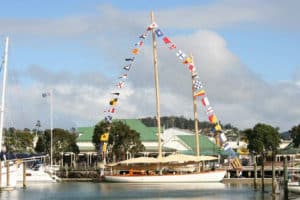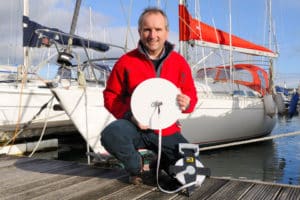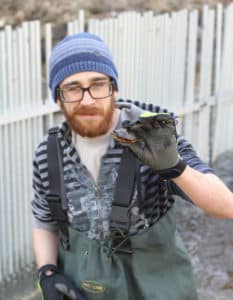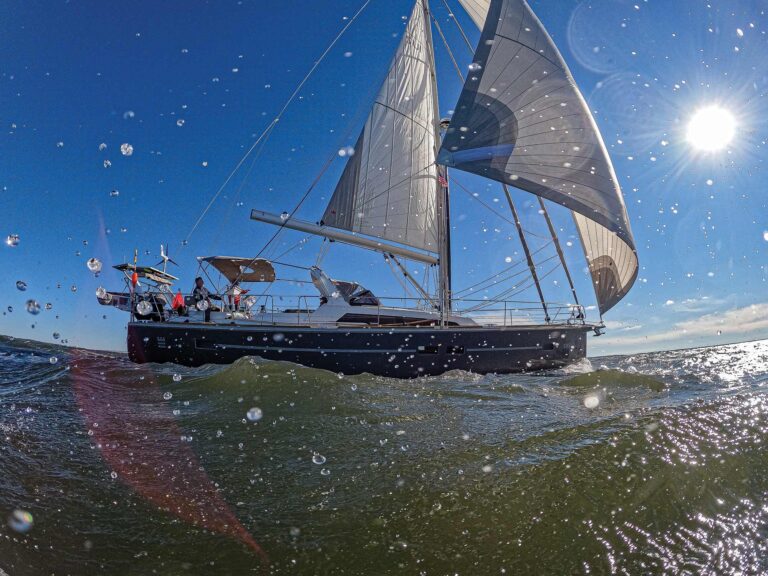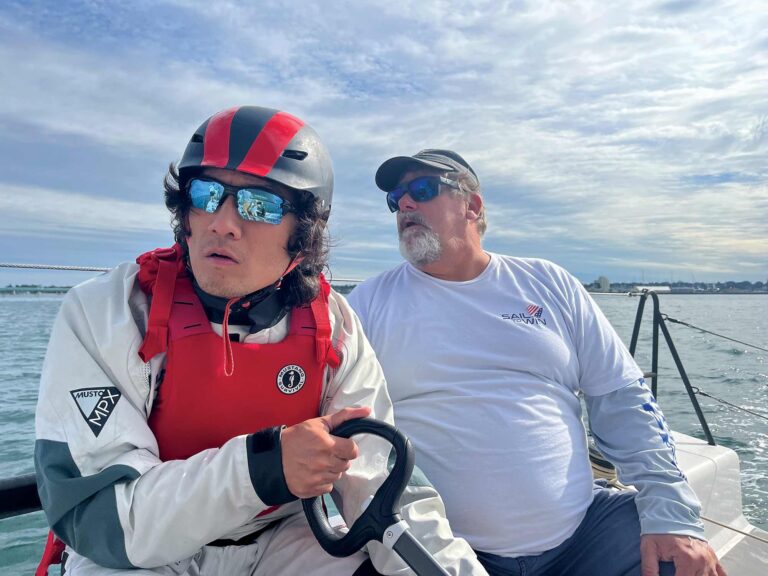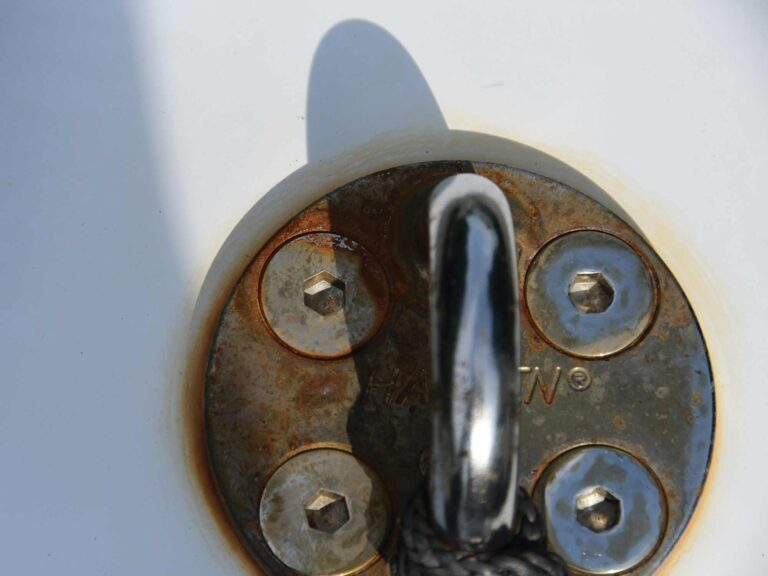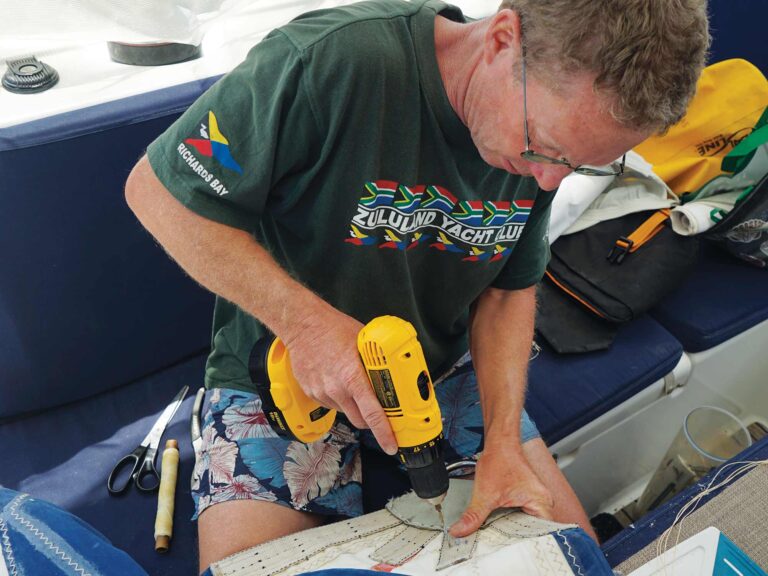Bum Ticker, Green Crew
Helping sailors in trouble via SSB radio is usually a cooperative effort involving dozens of people on numerous craft located in many different countries.
Example: While in Rarotonga, in the Cook Islands in the South Pacific, we were moored next to a heavy-set, red-nosed duffer who was regularly wining and dining younger girls for potential crew positions to New Zealand.
Once he found a willing helpmate, he took off for Auckland, but far too early in the season. Sailing with his green crew, he immediately hit a severe gale. Worse, he had a heart attack! Suddenly, there were two simultaneous problems: an almost-dying skipper and a terrified, never-been-to-sea-before crewmember.
Luckily, there are Good Samaritans who also just happen to be sailors, doctors, hams, and saints, and who are on a list of “ready to be called and consulted for free” if a fellow mariner is in life-threatening distress. I (and many sailing hams) have that list. Thus, within moments of receiving the “I’m having a heart attack” distress call, we were able to radio-link the patient with a doctor who just happened to be sailing nearby-well, within 2,000 ocean miles, anyway.
In the end, the patient lived, and the rueful crew survived via constant radio hand-holding.
A Wife Left Suddenly Alone
Just last season, American Randy Schneider of the Canadian-built Gozzard 44 Procyon (who assisted via sat phone during the Louis Honeycutt crisis; see “From Bad to Worse: Anatomy of a Shipwreck,” March 2007) had a serious medical emergency on his way to French Polynesia while 14 days out of the Galápagos. He was immediately put in touch via SSB with Tom Walker, M.D., on the catamaran Quantum Leap, who also just happened to be transiting the area. (See “Wild Guards Ride the Rescue,” January 2008.) Day after day, Randy and Doc Tom consulted until it was decided that the steadily deteriorating Randy should be taken off Procyon for proper care of his obstructed bowel. This was arranged almost immediately. A nearby 600-foot container ship stopped, and Randy was soon recovering in its sick bay, cared for (by another lucky chance) by a passenger/doctor. This left Randy’s wife, Sheri Schneider, all alone with 800 miles to go aboard Procyon. With nearby Endangered Species, Wind Pony, Aqua Magic, Necessity, and Wind Bird all helping out every step of the way-and a recovered Randy there to greet her at the end-Sheri completed the passage with no problem.
“I had complete confidence in the boat,” Sheri said later, and then joked, “I knew I was the weak link!”
Randy then chimed in: “That’s how it is. Everyone helps. Everyone. Without exception. It doesn’t matter if you like the guy or not, you just help out. Our experience was just amazing. People were unbelievably nice to us. The medical situation was awful, sure, but the volunteer emergency assistance was first-class!”
Only the Radio Brought Them Back
Just last year, Carolyn and I were involved in another slow-speed SSB incident that took place over many days. A British couple, David and Heather Lyne, aboard a Solaris 42 catamaran, Milliways (the name is from Douglas Adams’ Restaurant at the End of the Universe), had recently had a new windlass installed in New Zealand by a reputable yard, but the large electrical wires hadn’t been sealed as they entered the conduit from the anchor well. Thus, from the moment they hit heavy seas in an autumn gale, the entire electrical system of Milliways was gradually being shorted out by flooding. First, their trusty autopilot went, then their lights; finally, all the navigational equipment went down, as well. (Yes, they had a small, battery-operated GPS, but it operated only for a couple of hours before it, too, failed.)
David had to steer outside in a gale for many days-until he was in a daze! They lost track of their position, didn’t know what compass course to steer, and couldn’t figure out how far they were away from land, all while completely exhausted and hungry.
Amazingly, though, their SSB radio still worked. The crews of three nearby vessels (Wild Card, Lighten Up, and Pure Chance) took turns contacting Heather every two hours for days and gently talked them back into safe harbor.
“You have no idea how much it means in a situation like that. to be in radio contact,” said a grateful David later. “Just knowing you guys were there for us-and would be there for us-made a huge difference in our attitude. We weren’t completely alone or completely out-of-communication; we had friends, we had contact, and, well, we had comfort. It made a big difference.”
Of course, not all such tales of SSB rescue end with success. In the Virgins after Hurricane Marilyn, about an hour after the major winds had subsided, a sobbing, obviously exhausted voice eerily floated over Channel 16: “Please! Please! My boat is sinking. It’s filling with water. Will somebody please help me!”
The speaker failed to mention who he was or the name and location of his stricken vessel. I don’t know if help arrived in time-only that I’ll never forget the lonely terror in his voice.

